College
Ramapo’s Faculty-Student Research Tackles
Real-World Issues
By Mark Gregorio | Spring 2025
At Ramapo College, research isn’t just an academic exercise—it’s a transformative experience for students, faculty and the community. Guided by the Office of the Provost, the college is building a culture where faculty-student research thrives. The goal? To make these collaborations more visible, interdisciplinary and impactful.
“We’re aiming to change the culture,” said Dr. Ken McMurdy, president of the Faculty Assembly and an associate professor of mathematics. “We want to create an atmosphere where professors and students work together, experiment and build something bigger than the classroom.”
From addressing intimate partner violence (IPV) to examining sustainable fashion, Ramapo’s faculty-student research explores some of today’s most pressing challenges. One noteworthy project even uses storytelling to engage young people, producing comics that convey messages in a relatable way.
These efforts showcase how art and academic research can create meaningful conversations and solutions.
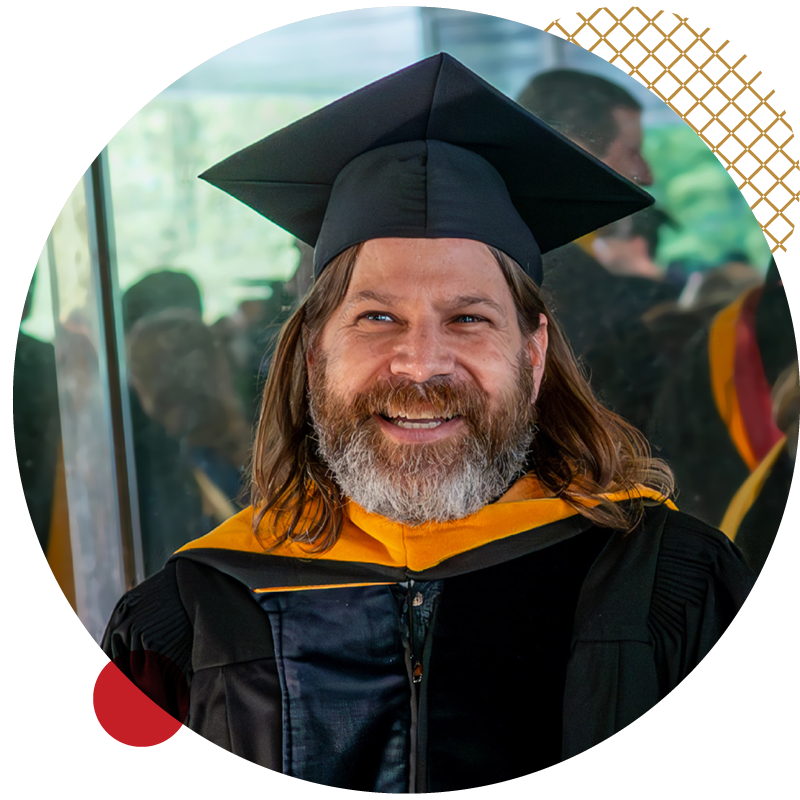
“We want to create an atmosphere where professors and students work together, experiment and build something bigger than the classroom.”
— Ken McMurdy
President of the Faculty Assembly and Associate Professor of Mathematics
Supporting Gen Z Survivors of Intimate Partner Violence
Finding the proper support for intimate partner violence (IPV) can be difficult for young survivors. That’s why Dr. Satarupa Dasgupta, associate professor of applied communication, is working with her students to explore how Gen Z uses digital tools like safety apps and online platforms.
“Survivors need effective tools—something user-friendly that ensures their safety,” Dasgupta explained. Her team is also looking at gaps in traditional IPV support systems, especially for LGBTQ+ survivors, who often face barriers to inclusive and effective services.
The project doesn’t just focus on research—it’s also a launchpad for students, many of whom are first-generation college attendees. They’ve co-authored publications, presented at major conferences and even participated in global events like UNESCO’s Global Community Health Annual Workshop.
“I want my students to connect research to real life,” Dasgupta said. “What challenges does society face? That’s what I want them to explore.”
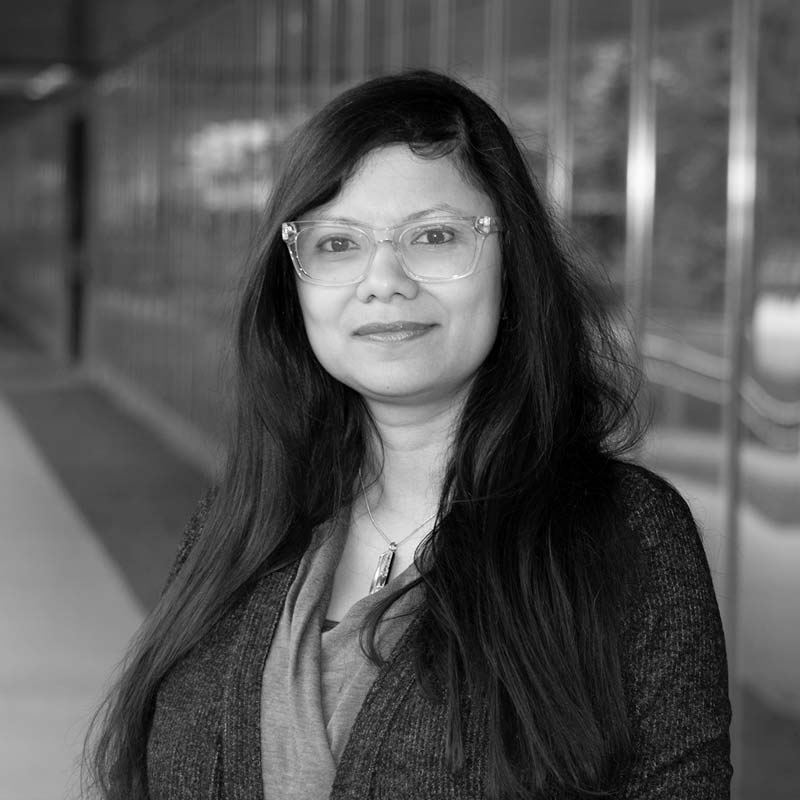
Professor Satarupa Dasgupta
Gen Z’s Call for Sustainable Fashion
Led by Drs. Enrique Nuñez, Fariba Nosrati and Desi Budeva at the Anisfield School of Business, the Sustainable Threads Research Collective is investigating Generation Z’s perspectives on sustainability in the fashion industry. With expertise in information technology, management and marketing, the research team has conducted a comprehensive analysis of social media conversations to grasp how young consumers view the necessity for government intervention. Their findings indicate that Generation Z expects more than corporate commitments—they expect measurable accountability.
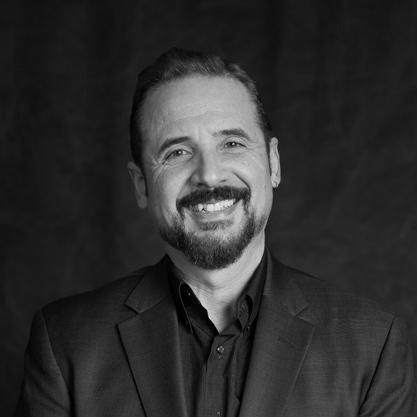
Professor Enrique Nuñez
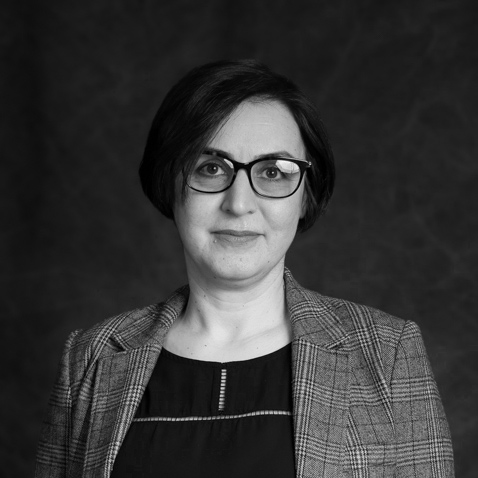
Professor Fariba Nosrati
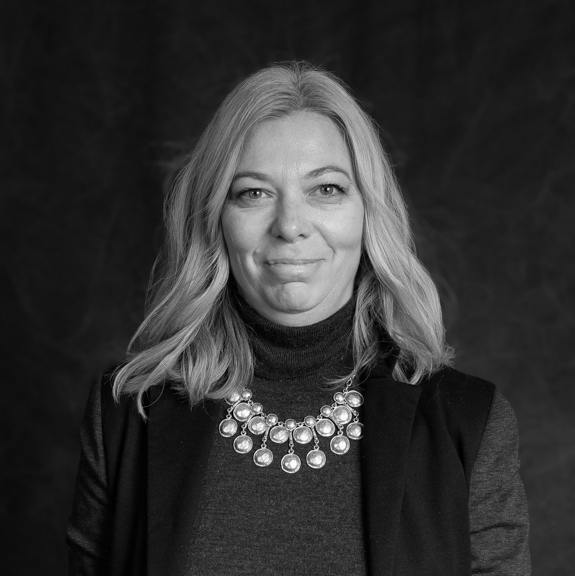
Professor Desi Budeva
“Gen Z isn’t convinced the fashion industry will regulate itself,” said Nuñez, an associate professor of management. “They’re calling for stricter government policies and real accountability.”
The research highlights key strategies supported by Generation Z, such as implementing government regulations, advancing sustainable materials and adopting ethical production practices. Students involved in this initiative have gained invaluable experiential learning opportunities, presenting their findings at prestigious academic forums like the Council of Public Liberal Arts Colleges Northeast Regional Undergraduate Research Conference and the Society for Advancement of Management Conference.
“This type of interdisciplinary research prepares students to address complex global issues,” Nosrati said. “It’s inspiring to see faculty and students collaborate to create meaningful change.”
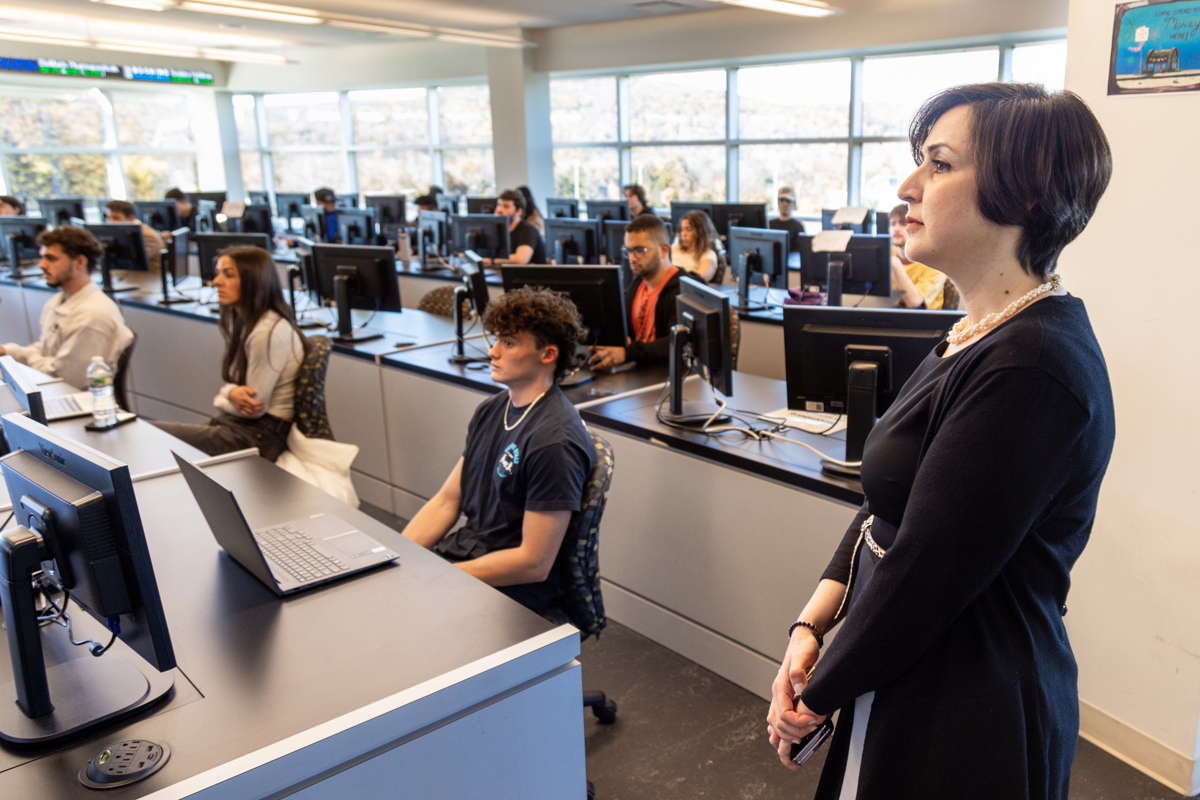
Business Professors Fariba Nosrati, Enrique Nuñez and Desi Budeva collaborated with students to research sustainability and accountability in the fashion industry.
Comics as a Gateway to Literacy
Research at Ramapo also goes beyond social and environmental issues, delving into education. Dr. Michael Bitz, professor of teacher education, has proven that comics aren’t just for fun—they’re powerful learning tools.
Through his Comic Book Project (CBP), young people write, design and publish their comic books. The initiative promotes creativity, literacy and community engagement. “Comic books have always served as a gateway to literacy,” Bitz explained. “They get kids involved in reading and storytelling in ways traditional methods can’t.”
Since its launch, CBP has reached over 150,000 students and educators. Using an action-research methodology, the project refines educational techniques in real-world settings. The results are clear: students improve their writing skills; boost their literacy; and gain confidence in expressing themselves.
“It’s special for students to see their stories in print,” Bitz said. “It gives them ownership of their learning and a voice in their community.”
The American Library Association has endorsed comics as practical educational tools, cementing CBP’s role as a model for blending creativity and literacy.
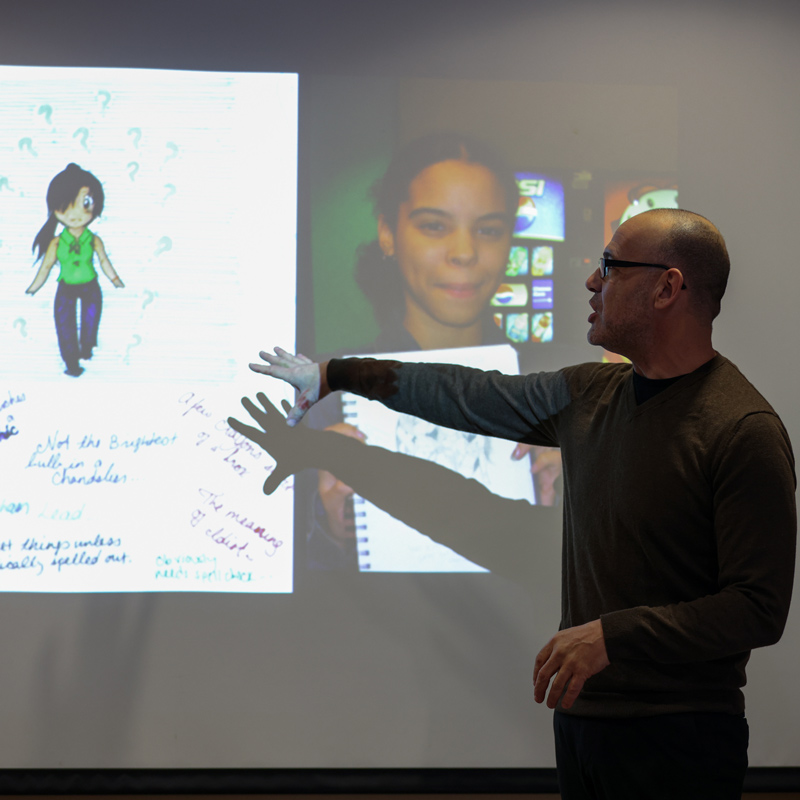
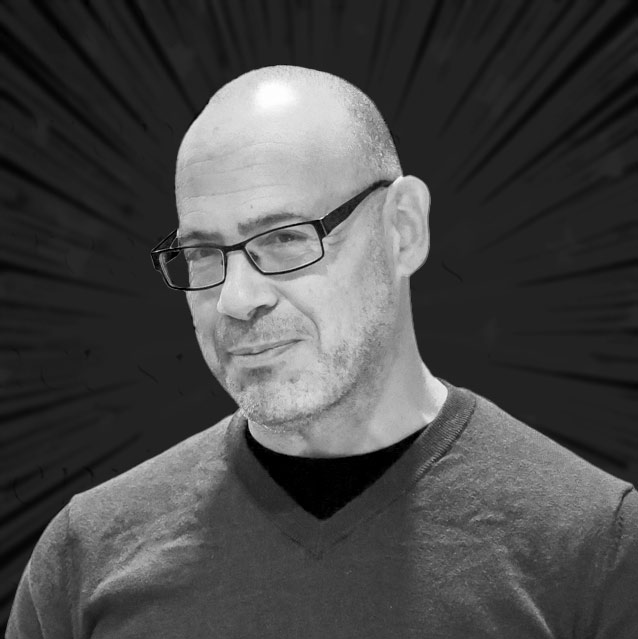
Professor Michael Bitz
Bridging Academia and the Real World
At a small liberal arts institution like Ramapo College, faculty-student research plays a transformative role in academic development. By engaging in research, students gain advanced knowledge, develop critical problem-solving skills and build meaningful connections with faculty mentors. This high-impact learning experience fosters student retention and enhances career readiness, equipping graduates with the expertise and confidence to excel in their fields. Faculty-student collaboration at Ramapo underscores the institution’s commitment to academic excellence and its dedication to preparing students for success beyond the classroom.
